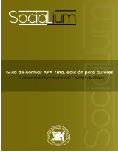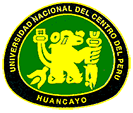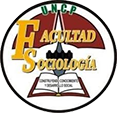Motivational affective factors and literacy learning in students of the second grade of primary from School No. 64668 La Perla Yarinacocha, 2018
DOI:
https://doi.org/10.26490/uncp.sl.2019.3.1.525Keywords:
motivational affective factors, literacyAbstract
The study was proposed to determine the relationship between motivational affect factors and literacy learning in children of the second grade of primary school. The research, by its nature, was theoretical; by its scope, descriptive, and by its purpose, quantitative; as a general method, it was used the scientific one, and in a specific way, the descriptive one, with a descriptive correlational design. For the sample, 70 second-grade primary school students were taken in a census way from Educational Institution No. 64668 La Perla from Yarinacocha, province of Coronel Portillo. The observation technique and its instrument, the observation guide, were used on the variables affective motivational factors and literacy learning. It was concluded that there is a direct relationship between these variables, with a Spearman’s rho coefficient of 0.609, at a 0.05 of significance. The better the affectivity develops, the more literacy will develop.
References
Ander, E. (1984). Buscando la sinergia en trabajo social: técnicas de reuniones de trabajo. Bogotá, Colombia: Colatina.
BOCYL. (3 marzo de 2011). ORDEN EDU/152/2011, planes de fomento.
Chóliz, M., y Tejero, P. (1995). Neodarwinismo y antidarwinismo en la expresión de las emociones en la psicología actual. Revista de Historia de la Psicología 15, 89-94.
Damasio, A. R. (1994). El error de Descartes. Barcelona, España: Crítica.
Dobbs, J. L., Sloan, D. M., & Karpinski, A. (2007). A psychometric investigation of two selfreport measures of emotional expressivity. Personality and Individual Differences, 43(4), 693-702. doi: 10.1016/j.paid.2007.01.010
Ferreiro, E. (3 de febrero de 2011). Las ferrerianas. Recuperado de: http://lasferrerianas5.blogspot.com.es/
Hernández, R., Fernández, C., y Baptista, P. (2010). Metodología de la investigación. México: McGraw-Hill.
Kring, A. M., Smith, D. A., y Neale, J. M. (1994). Individual differences in dispositional expressiveness: development and validation of the emotional expressivity scale. Journal of Personality and Social Psychology, 66(5), 934-949.
Linares. A. (2009). Desarrollo cognitivo: las teorías de Piaget y Vygotsky. Universidad Autónoma de Barcelona.
López, K. (2012). La incidencia de afectividad en el desarrollo del lenguaje oral en niños de 4 a 6 años de la ciudad de Loja. (Tesis de licenciatura). Universidad de Loja - Ecuador.
Pekrun, R. (1992). The impact of emotions on learning and achievement: towards a theory of cognitive/motivational mediators. Applied Psychology: An International Review, 41(4), 359-376.
Stevick, E. (1980). Teaching languages: a way and ways. Rowley, MA, Estados Unidos: Newbury House.
Valladares, O. (2007). Cómo formar niños lectores (1.a ed.). Lima: Editorial Mantaro.








.jpg)















